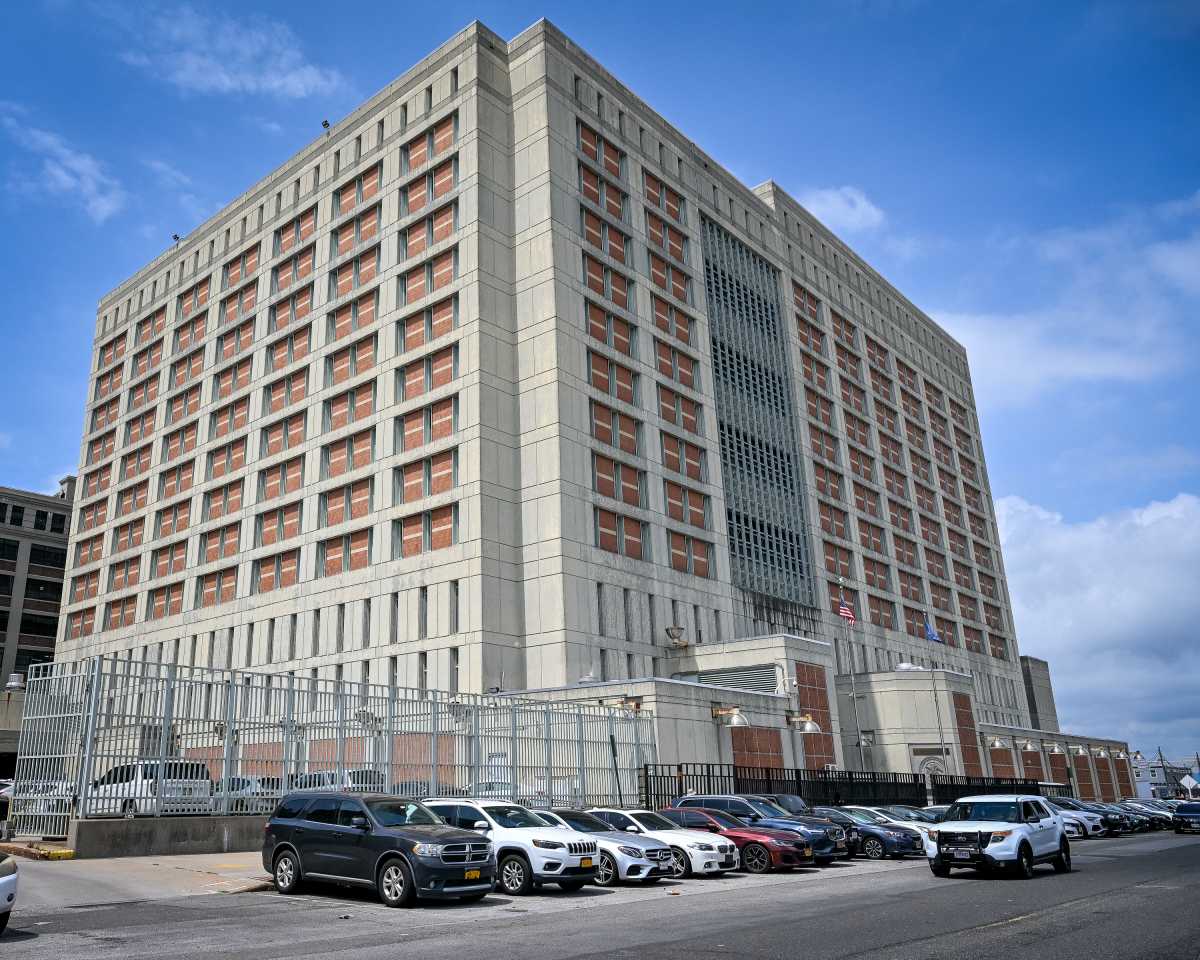2012_07_25_Moore_Affordable Care Act Op Ed
Conservative Court upholds key provisions of the Affordable Care Act
On June 28 2012, the U.S. Supreme court rendered its long-anticipated and much-debated opinion in the landmark case of National Federation of Independent Businesses (NFIB) v. Sibelius – the Affordable Care case. There was high drama both inside and outside of the majestic halls of the U.S. Supreme Court. In part 3a of the opinion, Chief Justice Roberts stated that “the individual mandate is not a valid exercise of congress’s power under the Commerce Clause and the Necessary and Proper clause”. This statement elicited a wild and frenzied victory dance by rabid supporters of the Tea party, in the courtyard outside of the courthouse. This euphoria, however, came to a sudden halt, when the chief justice further elaborated that “the individual mandate must be construed as imposing a tax on those who do not have health insurance, if such a construction is reasonable”. Then came the piéce de résistance, when the chief justice concluded that “the individual mandate may be upheld as within the taxing clause.” All hell broke loose in the conservative universe.
The Affordable Care Act has been like the Coney Island Cyclone. It has generated ups and downs-sharply contrasting moments of euphoria and depression, in the liberal and conservative communities alike. Before the oral arguments in the Supreme Court in March 2012, the legal community in the liberal bloggersphere believed overwhelmingly that the individual mandate would be upheld by the court, under the interstate commerce clause. A whole line of judicial precedents from Wickard v. Filburn, 317 U.S. 111 (1942) had validated the federal government’s expansive reach into many areas of social interaction.
However after the oral arguments on March 28 2012, and the aggressive questioning of the Solicitor general by the conservative justices on the court, an air of depression fell over the liberal bloggersphere. There was a universal feeling that the individual mandate, and indeed, the entire bill, would be overturned. The only hope lay in the machinations of Justice Kennedy, who would sometimes flirt with the liberal justices on the court. But it was clear from Justice Kennedy’s hostile questions at the oral arguments that he would not be siding with the liberal justices in this case.
Virtually no one expected that the “deus ex machina” would be Justice Roberts who had never before displayed any liberal tendencies. Virtually no one expected that he would be the swing vote that would uphold the individual mandate. But Justice Roberts upheld the mandate, not under interstate commerce clause, as was widely expected but under the seldom-used taxing clause, which was the fallback option in the solicitor general’s brief. Justice Roberts reasoning was a bit tortuous and circular, but it nevertheless resulted in validating the key provision in The Affordable Care Act- the individual mandate.
1. The power to regulate interstate commerce
Article 1 section viii of the Constitution states that “Congress shall have Power…To regulate Commerce with foreign Nations and among the several States, and with the Indian Tribes”. The chief justice did not question the existing doctrine about the power of congress to regulate actual commerce. The court limited the commerce clause to the original meaning – commercial activity. The chief justice argued that the power to regulate commerce presupposes that there is commercial activity. However if an individual chooses not to purchase insurance, there is no commercial activity. He reasoned that, congress cannot compel an individual to engage in commercial activity. The chief justice used the analogy of health care and food consumption to make his point. He stated that “all persons consume food.” Unlike health care, food consumption is an ongoing activity. Congress cannot force persons to purchase a particular type of food, such as broccoli. Hence the Chief Justice did not seek to challenge or overrule Wickard v. Filburn and other judicial precedents in validating the power of congress to regulate commercial activity. It merely stepped around Wickard and other judicial precedents, concluding that those who do not purchase health insurance are not engaged in commercial activity.
2. The Taxing Power
Article 1 section 8 of the Constitution states that “The Congress shall have Power to lay and collect Taxes, Duties, Imposts and Excises…; but all Duties, Imposts and Excises shall be uniform throughout the United States;”
Article 1 section 9 of the Constitution states that “no capitation or other direct Tax shall be laid unless in Proportion to the Census or Enumeration herein before directed to be taken.”
The chief justice chose to give a liberal interpretation of the constitution when it comes to statutory construction. He adopted Wendell Holmes’s observation that “as between two possible interpretation of a statute one of which would render the act invalid and the other valid, our plain duty is to adopt that which will save the act.” Blodgett v. Holden, 275 U.S. 142-148. According to the government, “the mandate is not a legal command to buy insurance. It makes going without insurance just another thing that the government taxes like buying gasoline or earning income.” The court argued that if “the mandate in effect is just a tax hike for individuals who do not have health insurance.” It was clearly within congress’s power to impose a tax.
There were two problems faced by the tax argument. If the exaction is regarded as a tax rather than a penalty, it would be subject to the Anti-Injunction Act which would prevent the courts from adjudicating the issue until the tax is due which would be in 2014. Here the court decided to adopt some legal gymnastics. It stated that “for purposes of the Anti-Injunction At the exaction is a “penalty” not a “tax”. But for purposes of statutory construction, it is a tax not a penalty.” When the attorney generals of the states argued that it is a direct tax and under Article 1 section 9 of the constitution a direct tax must be subject to the census and apportioned, among the several states, the court argued that this was an excise tax not a direct tax.
3. The court’s rationale for upholding the individual mandate under the taxing power
Justice Roberts, unlike the other conservatives on the bench, had come to the conclusion that the health care system in the United States was dysfunctional and unsustainable. He agreed with the administration that it was in need of radical transformation. A large population of uninsured individuals had led to the exorbitant premiums and a large amount of insurance exclusions. The system did not benefit either the policy holders or the insurance carriers. Furthermore, a high rate of uncompensated claims by the uninsured was crippling both the public and private hospitals. Justice Roberts decided that the Affordable Care Act would be upheld, but not under the interstate commerce clause. To Justice Roberts the commerce clause was an act of state compulsion, an invalid encroachment on individual liberties. He viewed the taxing power as a less intrusive weapon. The power to tax did not compel an individual to act in a particular way. It merely imposed a mild sanction for non-compliance. This was not a penal or criminal sanction. It was merely a financial sanction that would be collected by the IRS. In the particular case of the Affordable Care Act, the financial sanction was a very mild one representing less than a thousand dollars.
4. The Spending Power
Article 1 section 8 clause 1 of the Constitution states that “Congress shall have power to pay the debts and provide for the common defense and general welfare of the United States.”
The chief justice affirmed the power of congress to impose conditions on federal grants to states. However, the court claimed that there were limits to congress’s power under the spending clause. It characterized the spending clause legislation as “in the nature of a contract”. He stated that this legislation should not undermine the sovereignty of the states. This interpretation has led the court to scrutinize spending clause legislation to insure that congress is not using financial inducements to exert undue influence over the states. The court held that congress cannot use the spending clause to coerce states to enact certain laws desired by congress. This case is not the first to apply the anti-coercion rule, to federal mandates, but is the first case to find a conditional grant to the states to be constitutionally coercive. The court held that there are two factors which made Medicaid expansion coercive. Firstly, the relative impact on states budgets and secondly the relationship between the traditional Medicaid program and the Medicaid expansion program. The Medicaid cutoff involved at least 10% of almost every state’s budget. The federal highway funds cutoff in South Dakota v. Dole 483 U.S. 203 (1987) was less than one half of 1% of the state budget. The 10%cut in the state budgets was characterized as “a gun to the head of the various states.” The demarcation line of undue influence is between the NFIB cutoff of 10% and the South Dakota cutoff of one-half 1%. Justice Roberts declined to delineate the line of demarcation. He declared that “wherever that line may be this statute is surely beyond it.” The court also held that there was too distant a relationship between traditional Medicaid and Medicaid expansion. Traditional Medicaid is a program to provide medical coverage for a vulnerable population the blind, disabled and some adults living in poverty. Under the affordable care act states had to expand Medicaid to cover all adults who had incomes 133% of the federal poverty guidelines thus traditional Medicaid was transformed into a broad mandate to provide full Medicaid coverage to all poor adults in the state. Because of the transformation, the threat of cutting off traditional Medicaid was regarded as being too disconnected from the limited objective of traditional Medicaid to the broad objective of providing Medicaid to broad range of poor adults under the Medicaid expansion program.
5. The broader implication of NFIB v. Sibelius
Lower federal courts and future Supreme Courts have exercised great latitude in how they will apply Supreme Court precedents. This decision in NFIB v. Sibelius is in many respects sui generis and will have little precedential value in future cases involving interstate commerce, the taxing power and the spending power.
The Rehnquist Supreme Court in U.S. v. Lopez 514 U.S. 549 (1995), U.S. v. Morrison 529 U.S. 598 (2000) and Solid Waste Agency of Northern Cook Cty v. Army Corp of Engineers 539 U.S. 159 (2001) has severely restricted the reach of the interstate commerce clause in the areas of gun control, violence against women and environmental matters. This decision does not limit any specific area of interstate commerce activity. But it articulates the highly dubious proposition that congress cannot regulate an individual’s conduct, if the individual chooses not to engage in commercial activity. This means, in effect, that an individual can escape federal regulation by the simple expedient of voluntarily withdrawing from commercial activity. This decision also severely limits the ability of congress to impose federal mandates on the states. It arbitrarily establishes a line of undue influence which the federal government may not cross, lest its actions be deemed coercive. It will be up to federal district courts and the appellate courts to decide where that line is to be drawn. The court also makes a dubious distinction between a “penalty and a tax.” It articulates the proposition that an exaction can be a “penalty” for purposes of the Anti-Injunction Act, and a “tax,” for purposes of statutory construction. It also postulates the absurd proposition that an exaction can avoid the constraints of Article 1 section 9 of the constitution by labeling it an “excise” rather than a “direct” tax. Justice Roberts came to the correct conclusion in NFIB v. Sibelius, but he did it by utilizing a series of judicial sophistries and legal semantics which has devalued the integrity of the opinion. As Polonius said in “Hamlet,” “by indirections, find directions out.”
*Colin A. Moore is senior editor of Caribbean Weekly, and adjunct professor (emeritus) of Constitutional Law at Brooklyn College.
























